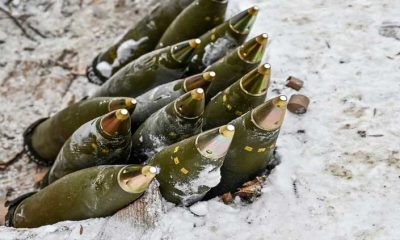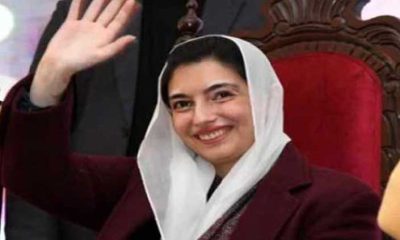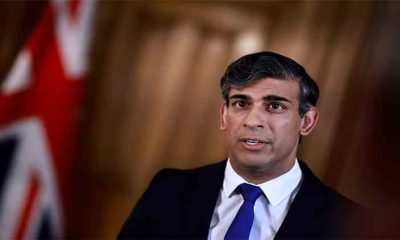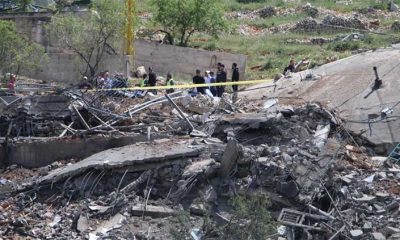Ukraine sent mixed messages over the fate of its defence minister on Monday, leaving a key post in its war effort in doubt even as it braces for a new Russian offensive.
A day after announcing that Defence Minister Oleksii Reznikov would be replaced, a top ally of President Volodymyr Zelenskiy appeared to row back for now, saying no personnel changes in the defence sector would be made this week.
David Arakhamia, chief of the parliamentary bloc of Zelenskiy’s party, had said Reznikov would be made minister of strategic industries, while the head of military intelligence, Kyrylo Budanov, would take over the defence ministry.
But Zelenskiy remained silent on the issue, while Reznikov himself said on Sunday he had not been informed of any move, and would reject the strategic industry job if offered it.
The doubt over the minister’s fate comes as Russian forces have been advancing for the first time in half a year in relentless battles in the east. A regional governor said Moscow was pouring reinforcements into eastern Ukraine for a new offensive that could come as soon as next week.
Two senior lawmakers on Monday noted that rules require Ukraine’s defence minister to be a civilian, which would appear to put an obstacle in the way of the immediate appointment of Budanov, a 37-year-old military officer.
Removing Reznikov, who has been warmly received in Western capitals including Paris just last week, would be the highest profile reshuffle in a slew of resignations and sackings in recent weeks, some of which followed corruption scandals.
Ukraine has a decades-long reputation for graft, and Zelenskiy is under pressure to demonstrate the country can be a reliable steward of billions of dollars in Western military and civilian aid. In announcing a personnel purge last month, Zelenskiy pledged to meet Western standards of clean governance.
Reznikov, a lawyer by profession, has not been publicly implicated in any scandals. But one of his deputies and several other officials have left, and prosecutors have announced a probe into allegations that a defence ministry contract would have corruptly overpaid for food for troops.
‘WAR DICTATES CHANGES’
Arakhamia said Ukraine’s armed forces should not be overseen by politicians during wartime, but by people with a background in defence or security.
“War dictates changes in personnel policy,” he wrote on the Telegram messaging app on Sunday.
Reznikov said on Sunday that any decision on a reshuffle was up to Zelenskiy, but told the Ukrainian Fakty ICTV online media that a planned transfer to a new ministry was news to him.
“If I suddenly received such an offer from the president of Ukraine or the prime minister, I would refuse it, because I do not have the expertise,” Reznikov was cited as saying.
Budanov, identified by Arakhamia as Reznikov’s replacement, is an enigmatic young officer decorated for his role in secret operations, who rapidly rose through the ranks to head up the military’s Main Directorate of Intelligence.
The possible shakeup coincides with Ukrainian fears that Russia is planning a major new offensive this month. Ukraine is planning its own counter-offensive but is waiting on Western supplies of battle tanks and infantry fighting vehicles.
“We are seeing more and more (Russian) reserves being deployed in our direction, we are seeing more equipment being brought in,” Serhiy Haidai, governor of the eastern Luhansk region, said, adding that shelling was no longer round-the-clock.
“They are slowly starting to save, getting ready for a full-scale offensive,” he said on television. “It will most likely take them 10 days to gather reserves. After Feb 15 we can expect (this offensive) at any time.”
MILITARY AID OVERSEER
Ukrainian presidential adviser Mykhailo Podolyak, when asked on national television on Sunday night how likely a reshuffle was, said: “Reznikov was extremely efficient in terms of communication with our partners. And this is a very important component in this case.”
As a wartime defence minister, Reznikov, 56, fostered ties with Western defence officials and helped oversee the receipt of billions of dollars of military aid to help Kyiv fend off the Russian invasion.
Podolyak said that Reznikov’s “wonderful” personal relations with allies have helped with the military supplies.
“Negotiations are not just mathematical formulae but also personal relationships. And trust. Unfortunately, today we are losing a measure of trust in us,” Podolyak said.
Reznikov singled out Ukraine’s “de facto” integration into the NATO military alliance as a top priority, even if joining the bloc was not immediately possible.
During his tenure as defence minister, he spoke out strongly about wartime corruption, which he said was akin to “marauding”.
But in recent weeks his ministry became embroiled in a corruption scandal over an army food contract that envisaged paying vastly inflated prices. It caused a public outcry.
The emergence of that scandal was followed by a major reshuffle that saw the exit of an array of regional governors, deputy ministers and other officials.
Reznikov hosted a news conference on Sunday afternoon, in which he said Ukraine expected a possible major Russian offensive this month, but that Kyiv had the resources at hand to hold them at bay.
He also said that his ministry’s anti-corruption department needed to be overhauled and that it had not done what it was supposed to do.
Post Views: 169

 Fashion3 months ago
Fashion3 months ago
 Fashion3 months ago
Fashion3 months ago
 Sports3 months ago
Sports3 months ago
 Sports3 months ago
Sports3 months ago
 Sports2 months ago
Sports2 months ago
 Sports2 months ago
Sports2 months ago
 Fashion2 months ago
Fashion2 months ago























